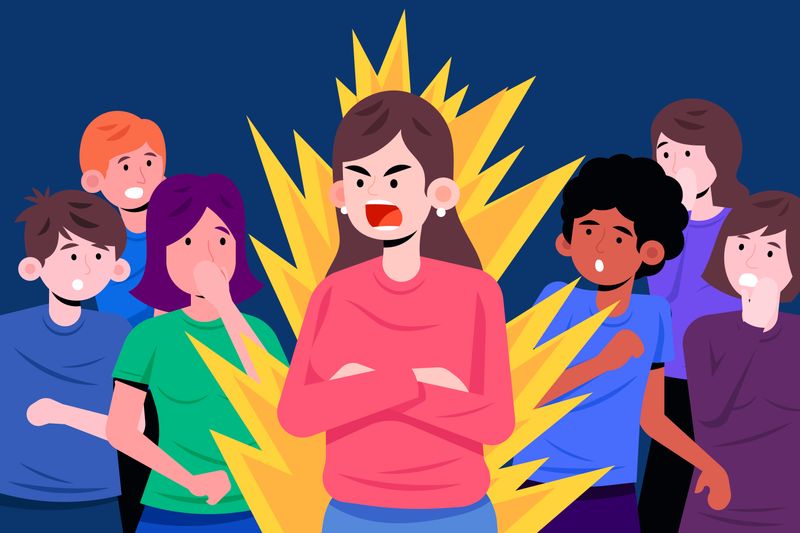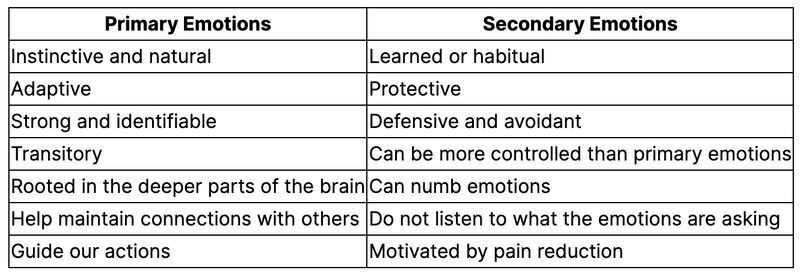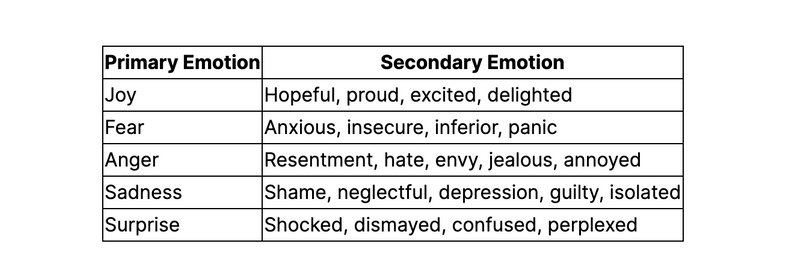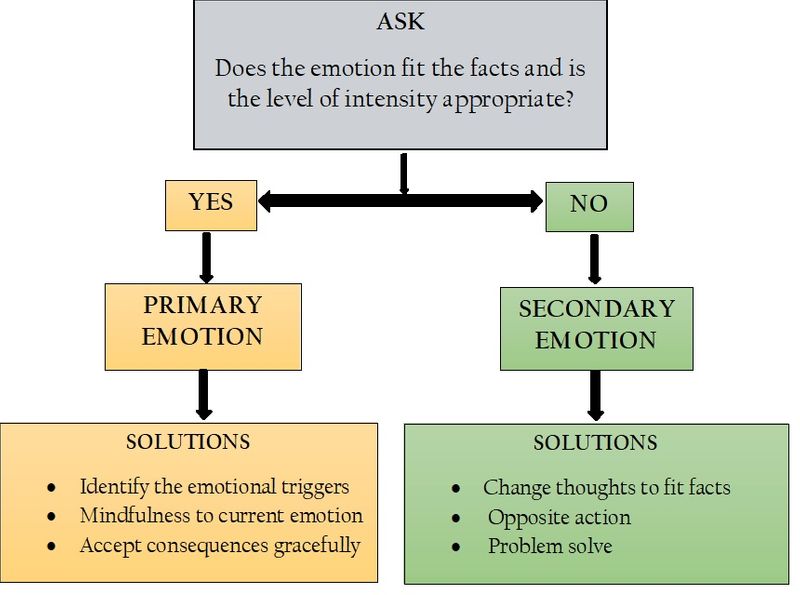Do you know how your emotions affect you?
Recognizing your emotions and learning to manage them is one of the most important skills you can have.
When we name our emotions, we can tame them.
And they can control us when we aren't aware of our emotions.

Types Of Emotions
There are two categories: primary and secondary emotions.
Primary emotions are how we react to events and situations.
Secondary emotions are reactions to how we feel.

Primary Emotions
Primary emotions are our initial, instinctive responses to stimuli or events before any cognitive processing takes place and are believed to be universal across cultures.
The body's first response that alerts you about your needs
Comes on strongly
Does not last very long
Eg., Feeling sad when someone breaks your trust
Primary emotions include: anger, fear, sadness, disgust, surprise, anticipation, trust and joy.

Quiz
Janet feels anxious about an upcoming interview. She becomes frustrated and ashamed of herself for not being more confident. What is the primary emotion in this scenario?
Secondary Emotions
Secondary emotions are a learned or ingrained way to deal with sensitive emotions by numbing them with a less sensitive emotion. For instance, hate is less sensitive than fear.
Secondary emotions are all about self-preservation, but over time, they often cause us much more harm by destroying relationships, maintaining our guard, or walling off our hearts, which frequently leaves people feeling irate, numb, worn out, and lonely.
Secondary emotions in brief:
Reactions to our primary emotions
Involves emotions that can be hard to understand
Can last for much longer than primary emotions
Eg., Feeling shame about being sad.
These are learned emotions that we pick-up in childhood from the people around us, like guilt, shame, confusion, resentment, frustration, and remorse.
Quiz
Which fact is true about secondary emotions?
Subscribe for more quick bites of learning delivered to your inbox.
Unsubscribe anytime. No spam. 🙂
Primary vs. Secondary Emotions: Key Differences
Primary and secondary emotions differ mainly in their source and function.
Primary emotions represent our immediate reactions to events and situations, while secondary emotions refer to how we feel.
The table below highlights the primary differences between primary and secondary emotions:

To understand the difference better, this table illustrates examples of primary emotions and their associated secondary emotions:

Primary vs Secondary Emotions: Telling The Difference
How do we know if we are experiencing primary vs secondary emotions?

Consider this example.
Jeff turns around to see his 5 year old son, Max, running into the street.
Jeff feels a sense of fear and panic.
Jeff starts yelling angrily until Max starts crying.
In this scenario:
The primary emotion is fear.
The secondary emotion is anger.
If Jeff had been aware of his emotions, he could have controlled his anger and responded more appropriately to his young son.
The Importance of Recognizing Primary vs. Secondary Emotions

Recognizing the difference between primary and secondary emotions is important for our emotional well-being, as it helps us to:
Identify and understand our emotional reactions and triggers
Understand and resolve the primary emotions driving our experiences
Develop healthier emotional responses and coping strategies
By understanding primary and secondary emotions and strengthening our emotional awareness, we can foster a more balanced and fulfilling emotional life.
Take Action
The next time that you feel a strong emotional reaction and it doesn't go away quickly, pay close attention.
Ask yourself: Is what I'm feeling a reaction to this situation?
Your feedback matters to us.
This Byte helped me better understand the topic.
